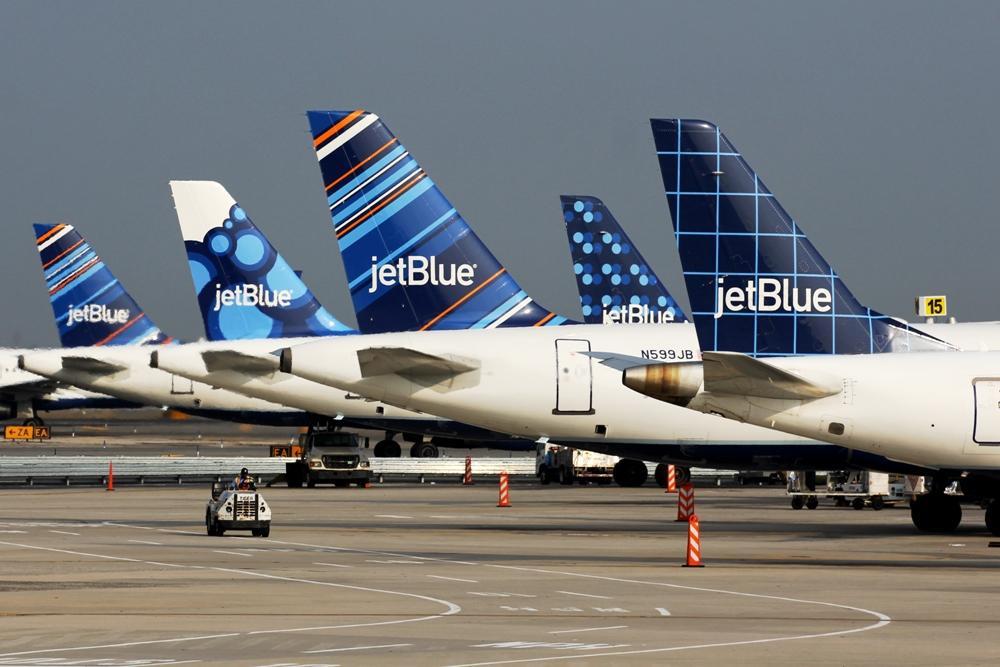
JetBlue Airways is slashing its planned schedule for the summer and rest of the year, part of an effort to bolster the reliability of its operations amid chronic staffing constraints.
New York Kennedy (JFK)-based JetBlue announced on April 26 that it will now target capacity growth of 0-5% for full-year 2022 compared to 2019 levels, a reduction from previous guidance of 11-15% growth versus 2019. The airline will reduce its summer schedule by 10% from previous plans, and expects aircraft utilization to decline 10-15% from 2019 levels.
The schedule reductions come after severe operational meltdowns caused by bad weather and air traffic control delays in Florida—compounded by staffing shortages, particularly among pilots—forced JetBlue to cancel hundreds of flights, with thousands more delayed, stranding passengers and crewmembers across its network earlier in April.
On an earnings call discussing the airline’s $255 million 2022 first-quarter net loss, JetBlue president Joanna Geraghty said the capacity reductions will help build a more “operable and resilient schedule that takes into consideration the reality of the operating environment, including elevated pilot attrition, omicron-related pilot training delays, business partner staffing shortages and ATC staffing shortages.”
In addition to relieving some pressure on staffing, lowering the airline’s planned utilization will also reserve more aircraft for spares, reducing the impact of maintenance-related delays and cancellations.
Besides trimming capacity, JetBlue is taking a number of actions to ramp up hiring and enhance the integrity of its schedule this summer. The airline is accelerating hiring efforts—including plans to staff 5,000 employees in New York City this summer—while working through a backlog of pilot training and re-certification flights that was made worse by the omicron variant disruptions.
Despite its hiring efforts, JetBlue is suffering an elevated attrition rate as many of its pilots go off to work at large legacy airlines that offer more pay. CEO Robin Hayes said management will have to “plan more conservatively” about the future rate of pilot attrition, an indication that he does not expect the issue to go away soon. He added that industry-wide structural changes, including a convergence in pilot salaries across large airlines, less system capacity growth and lower aircraft utilization are likely to occur as a result of the continued pilot deficit in coming years.
One factor that could potentially help alleviate JetBlue’s pilot attrition woes would be a successful merger with Spirit Airlines, Hayes said. “We believe the JetBlue and Spirit merger would allow us to supercharge and accelerate that organic plan and bring in a large group of pilots, creating a bigger destination carrier with more growth opportunities, and potentially reducing attrition,” he added.





